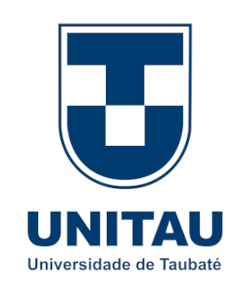ALÉM DO MODELO INDUSTRIAL: Educação, Trabalho e o Novo Contrato Social
DOI:
https://doi.org/10.69609/1516-2893.2025.v31.n2.a4044Palavras-chave:
Aprendizagem ao longo da vida, Educação, Era digital, Inclusão digital, Políticas Públicas, TrabalhoResumo
Esta pesquisa analisa criticamente as transformações no mundo do trabalho decorrentes da digitalização e seus impactos sobre a educação formal. Argumenta-se que a escola, ainda estruturada sob o paradigma industrial, mostra-se incapaz de atender às demandas da Nova Economia Digital, que privilegia criatividade, adaptabilidade, colaboração e aprendizagem contínua. Nesse sentido, esta pesquisa de caráter teórico-analítico, fundamenta-se em uma revisão bibliográfica interdisciplinar, articulando contribuições da economia, sociologia, filosofia e educação, além de dados secundários de organismos internacionais. O estudo evidencia a crise do modelo educacional industrial e propõe a construção de um novo ethos educacional e social, pautado pela fusão entre trabalho e aprendizagem, pela inclusão digital e pela formação crítica e contínua. Conclui-se que apenas a integração entre políticas públicas robustas, inovação pedagógica e formação docente poderá alinhar a educação, o trabalho e a cidadania às exigências da sociedade digital.
Downloads
Métricas
Referências
BANCO MUNDIAL. Brazil – Learning Poverty Brief. Washington, DC: World Bank Group, 2022. Disponível em: https://documents.worldbank.org/en/publication/documents-reports/documentdetail/099001507202239608/idu0c79a7ca400066041b60b7ef0ad4b020c8e5f. Acesso em: 31 ago. 2025.
BRAVERMAN, H. Trabalho e capital monopolista. Rio de Janeiro: Zahar, 1974.
BRYNJOLFSSON, E.; MCAFEE, A. The second machine age: work, progress, and prosperity in a time of brilliant technologies. New York: W. W. Norton & Company, 2014.
CETIC.BR. Pesquisa TIC Educação 2022 – Principais Resultados. São Paulo: NIC.br, 2022. Disponível em: https://www.nic.br/noticia/releases/empreendimento-conectividade-nas-escolas-brasileiras/. Acesso em: 31 ago. 2025.
COSTA, J. C. L., SANTOS, D. F. A., OLIVEIRA, M. R. DE, & MOURA, R. A. DE. (2025). Aprendizagem com solução de problemas reais para aprimoramento discente na injunção socioprofissional. CLCS, 18(2), https://doi.org/10.55905/revconv.18n.2-100
COULDRY, N.; MEJIAS, U. A. The costs of connection: how data colonize human life and appropriating it for capitalism. Stanford: Stanford University Press, 2019.
DRUCKER, P. F. Post-capitalist society. New York: HarperCollins, 1993. 232 p.
DRUCKER, P. F. The essential Drucker. New York: HarperCollins, 2001.
FORD, M. Rise of the robots: technology and the threat of a jobless future. New York: Basic Books, 2015.
FREEMAN, C.; PEREZ, C. Structural crises of adjustment: business cycles, technical change and economic theory. In: DOSI, G. et al. technical change and economic theory. London: Pinter Publishers, 1988.
FREIRE, P. Pedagogia do oprimido. Rio de Janeiro: Paz e Terra, 1970.
KORN FERRY. The $8.5 trillion talent shortage. Los Angeles: Korn Ferry Institute, 2018. Disponível em: https://www.kornferry.com/insights/this-week-in-leadership/talent-crunch-future-of-work. Acesso em: 31 ago. 2025.
KUHN, T. S. A estrutura das revoluções científicas. 4. ed. São Paulo: Perspectiva, 1996.
LANIER, J. Who owns the future? New York: Simon & Schuster, 2013.
LÉVY, P. Cibercultura. São Paulo: Editora 34, 1999.
LIPSEY, R. G.; CARLAW, K. I.; BEKAR, C. T. Economic transformations: general purpose technologies and long-term economic growth. Oxford: Oxford University Press, 2005.
MARX, K. A contribution to the critique of political economy. London: T. F. Unwin, 1859.
MCLUHAN, M. The Gutenberg galaxy: the making of typographic man. Toronto: University of Toronto Press, 1962.
MCLUHAN, M. The classical trivium: The place of Thomas Nashe in the learning of his time. Edited by W. Terrence Gordon. Corte Madera, CA: Gingko Press, 2006.
MCKINSEY & COMPANY. Preparing Brazil for the future of work: jobs, technology, and skills. São Paulo: McKinsey Global Institute, 2018. Disponível em: https://www.mckinsey.com/featured-insights/future-of-work/preparing-brazil-for-the-future-of-work-jobs-technology-and-skills. Acesso em: 31 ago. 2025.
MORIN, E. Os sete saberes necessários à educação do futuro. São Paulo: Cortez; UNESCO, 2000.
OECD. Future-ready adult learning in Latin America. Paris: OECD Publishing, 2021. Disponível em: https://www.oecd.org/industry/future-ready-adult-learning-in-Latin-America.pdf. Acesso em: 31 ago. 2025.
OLIVEIRA, M. R.; BENEVIDES, K. D. G.; RUFINO, L. J. G. C.; SANTOS, D. F. A.; BENEVIDES, M. P.; MOURA, R. A. Direito Digital e limitação no uso da IA: um ponto para reflexão. CLCS, [S. l.], v. 18, n. 7, p. e19679, 2025. DOI: 10.55905/revconv.18n.7-341. https://ojs.revistacontribuciones.com/ojs/index.php/clcs/article/view/19679
ONG, Walter J. Oralidade e escrita: a tecnologização da palavra. 2. ed. São Paulo: Loyola, 1998
PIKETTY, T. O capital no século XXI. Tradução de Mônica Baumgarten de Bolle. Rio de Janeiro: Intrínseca, 2014.
RICARDO, D. On the principles of political economy and taxation. 3. ed. London: John Murray, 1821.
SCHWAB, K. A quarta revolução industrial. São Paulo: Edipro, 2016.
SCOTT, J. C. Against the grain: a deep history of the earliest states. New Haven: Yale University Press, 2017.
SOLOW, Robert M. A contribution to the theory of economic growth. Quarterly Journal of Economics, v. 70, n. 1, 1956.
SRNICEK, N.; WILLIAMS, A. Inventing the future: postcapitalism and a world without work. London: Verso, 2015.
STIEFENHOFER, P. Artificial general intelligence and the end of human employment: the need to renegotiate the social contract. Newcastle: Newcastle University, Department of Economics, 2025.
SELWYN, Neil. Is technology good for education? Toronto, ON: John Wiley & Sons, 2016. 160 p. ISBN 978-0-7456-9646-1. Disponível em: https://journalhosting.ucalgary.ca/index.php/cjeap/article/view/42078/30057. Acesso em: [01 set. 2025].
TOFFLER, A. A terceira onda. Rio de Janeiro: Record, 1980.
WEF. World Economic Forum. The future of jobs in Latin America and the Caribbean: digital skills gap must close quickly to satisfy evolving employer demands. Genebra: WEF, 2025. Disponível em: https://www.weforum.org/stories/2025/04/the-future-of-jobs-in-latin-america-and-the-caribbean-digital-skills-gap-must-close-quickly-to-satisfy-evolving-employer-demands/. Acesso em: 31 ago. 2025.
Downloads
Publicado
Como Citar
Edição
Seção
Licença
Copyright (c) 2025 Walkiria de Carvalho Pereira Tozi, Luciana Spolon, Luiz Antonio Tozi

Este trabalho está licenciado sob uma licença Creative Commons Attribution-NonCommercial-NoDerivatives 4.0 International License.
A submissão de originais para este periódico implica na transferência, pelos autores, dos direitos de publicação impressa e digital. Os direitos autorais para os artigos publicados são do autor, com direitos do periódico sobre a primeira publicação. Os autores somente poderão utilizar os mesmos resultados em outras publicações indicando claramente este periódico como o meio da publicação original.




